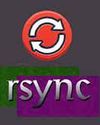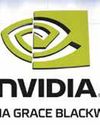
As mentioned in the last article, ChatGPT is a chatbot launched by OpenAI in November 2022. Within just two months of its existence, ChatGPT has created two opposing factions. One faction is supporting AI based tools like ChatGPT and waiting for a Utopian world created by AI. The other faction is worried about AI and making doomsday predictions. They fear a dystopian future — a Terminator-like scenario in which machines control humans and not the other way round. Some of the people in this faction also believe that ChatGPT will be a job killer. The jobs potentially under jeopardy according to these people include business transcription, medical transcription, copy writing, teaching, legal work, etc. But do remember that half a century ago many people believed that computers were job killers and see how mistaken they were. Some people also predict that tools like ChatGPT might be the beginning of the end for conventional search engines like Google, Bing, Baidu, etc — a belief I don’t share personally.
But what about the popularity of ChatGPT? FaceBook took 10 months to get one million subscribers in 2004. Twitter took about two years to obtain one million subscribers in 2006. Instagram was downloaded by more than one million users within 2.5 months of it being made public in 2010. All are amazing achievements. But do you know how much time ChatGPT took to obtain one million subscribers after it was made available to the public? Less than a week! Simply amazing, isn’t it? I don’t know the exact number of subscribers as of writing this article. But nowadays the services of ChatGPT are often unavailable due to the large number of users.
Denne historien er fra February 2023-utgaven av Open Source For You.
Start din 7-dagers gratis prøveperiode på Magzter GOLD for å få tilgang til tusenvis av utvalgte premiumhistorier og 9000+ magasiner og aviser.
Allerede abonnent ? Logg på
Denne historien er fra February 2023-utgaven av Open Source For You.
Start din 7-dagers gratis prøveperiode på Magzter GOLD for å få tilgang til tusenvis av utvalgte premiumhistorier og 9000+ magasiner og aviser.
Allerede abonnent? Logg på

Red Hat unveils Red Hat OpenShift Virtualization Engine
Red Hat OpenShift Virtualization Engine is a new edition of Red Hat OpenShift that offers a dedicated solution for organisations to leverage the virtualisation capabilities already available within Red Hat OpenShift.

Spring AI: A Door to GenAI Heaven for Java Developers
Let's explore the Spring AI framework and its advantages, and look at how it is helping Java developers adopt AI.

Significant security vulnerabilities drive the release of Rsync 3.4
Rsync, the widely used utility for incremental file transfers and synchronisation, has released version 3.4. This update isn't packed with exciting new features but is instead critical due to several newly disclosed security vulnerabilities.

NVIDIA puts Grace Blackwell at every AI developer's fingertips
NVIDIA has introduced NVIDIA Project DIGITS, a groundbreaking personal AI supercomputer designed to empower AI researchers, data scientists, and students NVIDIA® NVIDIA GRACE BLACKWELL with the immense capabilities of the NVIDIA Grace Blackwell platform.

Top Tools for DevOps, Cybersecurity, and Cloud Management in 2025
In 2025, organisations will continue to rely on open source tools to retain a competitive edge. We look at why the best tools for DevOps, cybersecurity and cloud management will remain relevant and how best to integrate them into your organisation.

CREW: Open source platform to improve human-AI interaction
As human-AI collaboration deepens, critical questions arise: How should humans and AI complement one another? What kind of feedback enhances AI training? How can trust in AI be optimised to balance collaboration without over-reliance? Researchers at Duke University are addressing these challenges through CREW-an innovative platform designed to advance human-AI teaming.

Red Hat completes the acquisition of Neural Magic
Red Hat, Inc., has announced the completion of its acquisition of Neural Magic, a trailblazer in software and algorithms that accelerate generative AI (GenAI) inference workloads.

The Do's and Don'ts for Software Architects
Here's a list of best practices for software architects as well as the common mistakes they should try not to fall prey to.

openSUSE's Tumbleweed introduces Wayland support for the LXQt desktop environment
The openSUSE Project has announced that its Tumbleweed rolling release distribution now includes Wayland support for users of the LXQt desktop environment.

A Guide for Software Architects: Common Mistakes and Best Practices
Software architects play an invaluable role in the digital transformation of an organisation. To make a mark, they must imbibe certain qualities and avoid common errors.